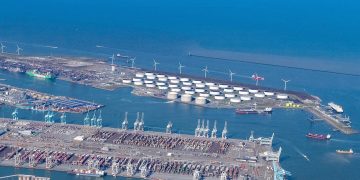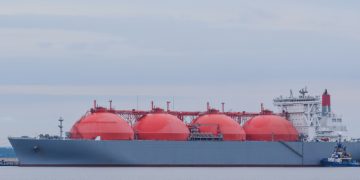As the Nautical Institute reports, a tanker was in port to discharge two separate parcels of cargo to the shore terminal in sequence, one after the other.
The incident
The chief officer completed the company’s valve line-up checklist and the cargo handling plan (CHP) as per the company Safety Management System (SMS). All deck officers and ratings read and initialled the CHP and attended the cargo handling briefing.
Unknown to those on board, the valve to the tank containing the second parcel had been left open after cargo loading and draining of the cargo arm. This remained unidentified for reasons that are explained below. Once the first parcel had been unloaded it was discovered that product from the second parcel had been discharged simultaneously with the first, contaminating both parcels.
The investigation revealed several unsafe conditions that allowed this incident to occur.
- The light indicating that the tank valve is open was defective. When the vessel arrived at the discharge port, the fact that the light was off was taken as an indication that the valve was closed.
- It was standard practice that when more than one parcel is loaded, the valves that are not being worked are protected by a plastic cover which is secured in position with tape. This precaution causes its own unsafe condition; making harder to visually check the actual status of the valve.
- The pre-arrival checklist asks, among other things: ‘Have all cargo lines/valves been checked?’ The Chief Officer is expected to open and close all cargo valves to validate their operational condition before the cargo operation begins. Due to the demanding trading pattern and the frequent port calls, the good operating condition of the valves had been frequently validated. This created a false sense of safety and inclined the chief officer to skip checking each and every cargo valve before the operation. As a result, the forgotten open valve of the load port was not identified in time.
Other ‘barriers’ in place to allow timely identification of any deviation from the plan were also sidestepped or otherwise annulled:
- The digital cargo level gauging system screen was rearranged so that the display for the first parcel was shown on top of the other tank readings. It was therefore difficult to see the change in quantity of the second parcel that was being simultaneously discharged.
- The junior deck officers did not check/record the ullage of the second parcel during the discharge of the first parcel. They assumed that the ullage of the second parcel would remain the same during the discharge of the first parcel so they pre-entered the expected ullage values for the tanks in the discharge progress record in order to save time and effort.
Lessons learned
- Procedures can be (and sometimes are) sidestepped by crew with a mind to ease the workload and accelerate a process. Attention to detail by vessel leaders should nip this practice in the bud before it becomes routine.
- Sometimes, well meaning ‘barriers to hazards’ put in place by crew, such as the plastic cover protection on the valves of tanks not being worked, can have unexpected negative consequences.



























































